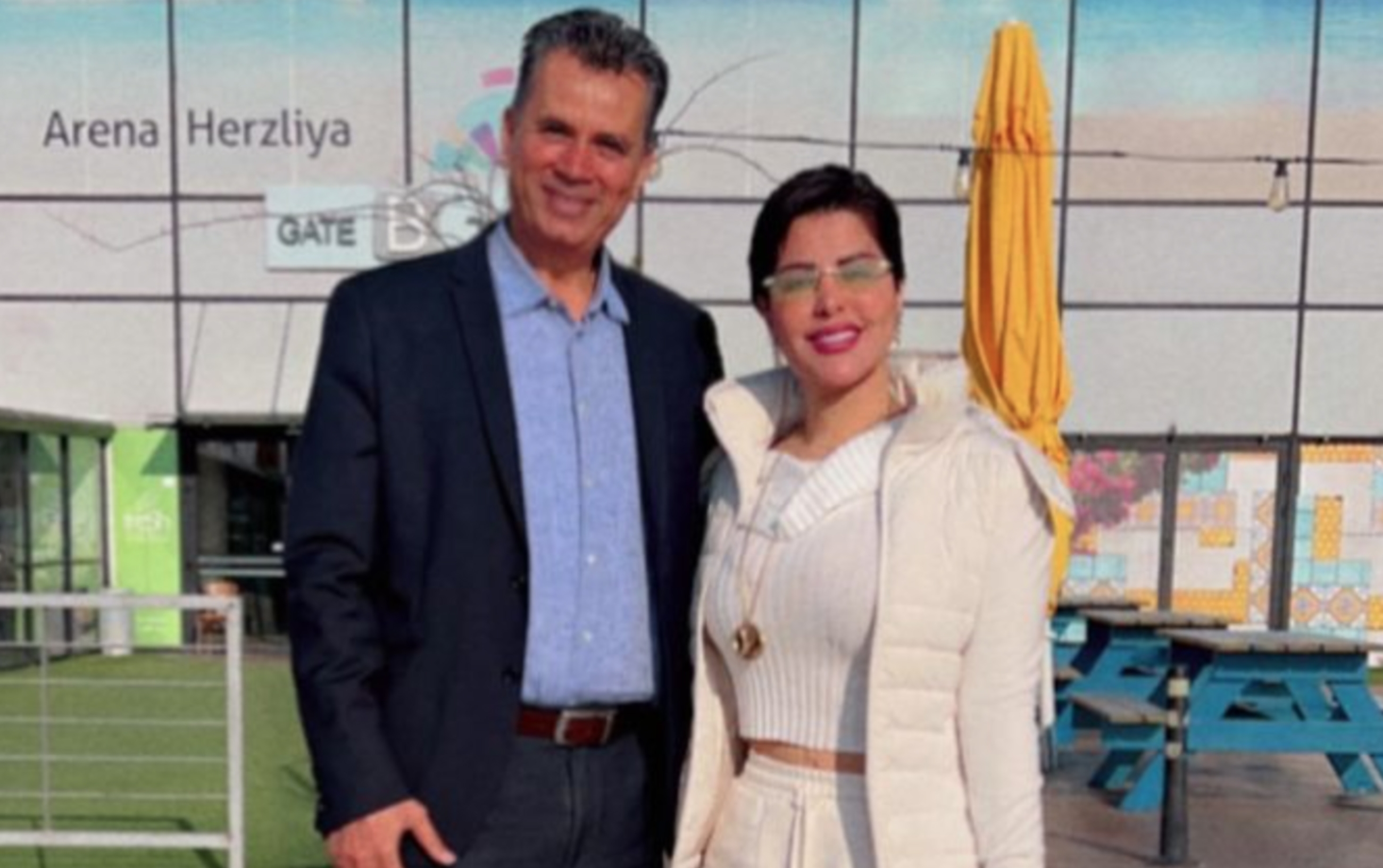Kuwaiti singer faces criticism for visiting Israel

A Kuwaiti singer and actress has come under fire on social media after posting a picture of herself on a visit to the city of Herzliya in Israel.
Social media users have accused Shams Bandar al-Aslami of attempting to promote the normalisation of relations with Israel after she shared a picture on Instagram of her and Nader Butto, a renowned cardiologist, on 3 January with the caption, "From #Palestine. All the beauty with the international doctor #Nader_Butto from his academy of research and understanding the soul, and controlling the mind and body", and a location tag at the Ritz Carlton hotel in Herzliya.
Most of the backlash has come from Arab fans, particularly those from Kuwait and Palestine, who expressed their rejection of her visit and accused her of paving the way for normalisation with Israel.
Translation: Shams, the 'Herzliya' that you're currently in right now is a colony built on the purged [Palestinian] village of Saydna Ali. There are bodies buried under the ground you're standing on, and there are people who were either killed or kicked out, and in their place these buildings were built.
Translation: This is so shameful, and she's taking her followers for fools. At least take an honourable stance. You could have met, supported and coordinated with Palestinians if that was your real intention, instead of writing 'Palestine' with no shame. Truly, there are no morals, just self-interest. Very shameful.
Former Kuwaiti MP Walid al-Tabtabae tweeted: "She must be held accountable or prevented from entering Kuwait."
Israeli users meanwhile criticised her use of the hashtag #Palestine, commenting with Israeli flag emojis, saying that the Arab singer was "in Israel".
Yair Netanyahu, son of Israeli Prime Minister Benjamin Netanyahu, also weighed in on the controversy.
"You are in the state of Israel! Even your location tag is in an Israeli Jewish city called Herzzelia [sic]. This city is named after the founding father of Zionism and Israel - Theodore Herzel!" he said in a comment on Instagram.
"You enjoy our hotels, our restaurants, and bars. You enjoy the freedom in Israel for a woman to wear what she wants, and enjoy that you can drink alcohol here! If you don't respect us and our hospitality, get the hell out of here!"
Middle East Eye has reached out to Aslami for comment, but did not receive a response at the time of publication.
Months before her visit to Israel, Aslami said in an interview that she was seeking out "knowledge and treatment" from a Palestinian doctor in Israel, whose speciality in cardiology and book Unified Integrative Medicine have garnered him a waiting list of four years.
The singer defended her planned visit in a video, claiming that her purpose wasn't to meet with diplomats or any officials, but to receive medical treatment and "connect with the soul". Her video included the Arabic hashtag #Shams_In_Palestine.
In the days after her initial Instagram post, Shams shared several images and videos of herself in hijab and Islamic prayer attire standing in front of the Dome of the Rock Mosque in Jerusalem on her Twitter and Snapchat pages.
Some users posted comments welcoming her to Palestine, while others said that she does not represent the general Kuwaiti sentiment about normalisation with Israel.
In recent years, the United Arab Emirates, Bahrain, Sudan and Morocco established diplomatic ties with Israel in US-brokered deals.
However, the vast majority of Arabs continue to oppose normalisation with Israel and have expressed strong opposition to famous Arab figures who, they say, attempt to paint such trips as "normal" and "acceptable".
New MEE newsletter: Jerusalem Dispatch
Sign up to get the latest insights and analysis on Israel-Palestine, alongside Turkey Unpacked and other MEE newsletters
Middle East Eye delivers independent and unrivalled coverage and analysis of the Middle East, North Africa and beyond. To learn more about republishing this content and the associated fees, please fill out this form. More about MEE can be found here.




